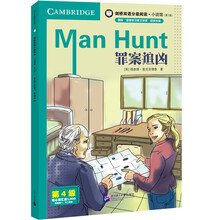Slaves to the Smartphone
沦为智能手机的奴隶
卢梭有言曰:人是生而自由的,但却无往不在枷锁之中。自以为是其他一切主人的人,反而比其他一切更是奴隶。功能强大的信息通信设备让人们轻松步入数字时代,弹指间便可掌握海量信息,与朋友也不再远隔千山。可是也正因如此,人们也日益依赖这些工具,常常因此而焦虑不安。本文作者虽然开出“数字节食”这一剂良药,但要真免于成为奴隶,还需要全体社会的努力。
“The Servant” 1(1963) is one of those films that it is impossible to forget—a merciless dissection of the relationship between a scheming valet (played by Dirk Bogarde) and his dissolute master (James Fox). The valet exploits his master’s weaknesses until he turns the tables: the story ends with a cringing Fox ministering to a lordly Bogarde. The film was an indictment of the class structure of Harold Macmillan’s Britain2. But it is hard to watch it today without thinking of another fraught relationship— the one between businessfolk and their smartphones.
Smart devices are sometimes empowering.They put a world of information at our fingertips. They free people to work from home instead of squeezing onto a train with malodorous strangers. That is a huge boon for parents seeking flexible work hours. Smartphones and tablets can also promote efficiency by allowing people to get things done in spare moments that would otherwise be wasted3 , such as while queuing for coffee. They can even help slackers create the illusion that they are working around the clock, by programming their e-mail to be sent at 1am.
《仆人》(1963) 是一部看了就很难忘记的电影——这部电影冷酷而又深刻地剖析了诡计多端的男仆(由德克·博嘉德饰演)和其放荡主人(由詹姆斯·福克斯饰演) 之间的关系。男仆利用主人的弱点最后扭转局势,反仆为主:故事结局是谄媚的福克斯服侍起了高傲的博嘉德。本部影片是对哈罗德·麦克米伦当政时期英国阶级结构的控诉。但是现在看这部片子,很难不让人联想到另外一段让人纠结难安的关系——商人和他们的智能手机之间的关系。
智能设备的功能有时候真的很强大,它们让浩瀚的信息触手可及。它们让人们可以在家工作,而不必和有汗臭味儿的陌生人挤在狭小的火车车厢里去上班。这对那些需要灵活工作时间的家长们来说真是福音。智能手机和平板电脑还能提高效率,人们可以在空余时间完成工作,这些时间很可能会被白白浪费,比如排队买咖啡的时间。它们还可以设定程序,在凌晨一点钟发送邮件,这样还会给偷懒的人营造出一种勤奋工作,废寝忘食的错觉。
But for most people the servant has become the master. Not long ago only doctors were on call all the time. Now everybody is. Bosses think nothing of invading their employees’ free time. Work invades the home far more than domestic chores invade the office. Otherwise-sane people check their smartphones obsessively, even during pre-dinner drinks, and send e-mails first thing in the morning and last thing at night.
但是对于大多数人来说,这个仆人早已成为他们的主人。不久前,还只有医生是随叫随到。而现在,每个人都已如此。老板视侵占员工的空余时间为理所当然。工作占用家庭生活的时间要远远多于家庭琐事影响工作的时间。就连心智健全的人都着魔一样地查看自己的智能手机,就连饭前喝口水的功夫都不放过,早上起床的第一件事和晚上睡觉前的最后一件事就是发送电子邮件。
This is partly because smartphones are addictive: when Martin Lindstrom, a branding guru, tried to identify the ten sounds that affect people most powerfully, he found that a vibrating phone came third, after the Intel chime and a giggling baby. BlackBerrys and iPhones provide relentless stimuli, stimulus interspersed with rewards. Whenever you check the glowing rectangle4, there is a fair chance you will see a message from a client, a herogram from your boss or at least an e-mail from a Nigerian gentleman offering you $1m if you share your bank details with him. Smartphones are the best excuse yet devised for procrastination. How many people can honestly say that they have never pruned their e-mails to put off tackling more demanding tasks?
原因之一就是智能手机让人上瘾:品牌营销专家马丁·林德斯特伦试图寻找对人最能产生影响的十种声音,他发现手机的震动排名第三,仅次于英特尔钟和婴儿的咯咯笑声。黑莓和苹果手机不断地向用户提供刺激,时不时还有奖励。你无论何时查看亮着的屏幕,都很有可能看到客户发来的信息或老板发来的邮件,或者至少有一封来自一位尼日利亚的绅士:如果能提供银行信息,你将得到100 万美元的报酬。智能手机是你借机拖延的最佳发明。有多少人能大胆坦言他们从来没有为了拖延那些要求苛刻的任务而删除邮件?
Hyperconnectivity exaggerates some of the most destabilising trends in the modern workplace: the decline of certainty (as organisations abandon bureaucracy in favour of adhocracy), the rise of global supply chains and the general cult of flexibility. Smartphones make it easier for managers to change their minds at the last moment: for example, to e-mail a minion at 11pm to tell him he must fly to Pittsburgh tomorrow. The dratted devices also make it easier for managers in one time zone to spoil the evenings of managers in another.
这种过度连接使得最能破坏现代办公场所稳定性的趋势进一步恶化:确定性的减弱(企业废除了官僚组织机构,转向灵活的特别委员会制度)、全球供给链的出现以及对弹性工作制度的普遍推崇。智能手机使得经理更容易在最后时刻改变心意:比如,晚上11 点钟才发邮件告诉他的下属第二天必须飞往匹兹堡。这讨厌的智能设备也使得处于这个时区的经理非常轻易地破坏另一个时区经理的美好夜晚。
Employees find it ever harder to distinguish between “on-time” and “off-time”—and indeed between real work and make-work. Executives are lumbered with two overlapping workdays: a formal one full of meetings and an informal one spent trying to keep up with the torrent of e-mails and messages.
员工也很难区分“上班时间” 和“下班时间” 了—— 事实上,应该是真正的工作和可做可不做的工作,它们之间也难以区别了。管理人员在这两个相互重叠的工作日里疲惫不堪:一天是一直开会的正式工作日,另一天是不得不处理大量邮件信息的非正式工作日。
None of this is good for businesspeople’s marriages or mental health. It may be bad for business, too. When bosses change their minds at the last minute, it is hard to plan for the future. And several studies have shown what ought to be common sense: that people think more deeply if they are not constantly distracted.
这一切对从业人员的婚姻和心理健康都十分有害。这些也许对生意也有损害。老板们在最后时刻改变主意,就很难对未来做出计划。已有好几项研究得出一个应该是常识的结论:如果不被频繁打扰,人们的考虑就会更加缜密。
What can be done to keep smartphones in their place? How can we reap the benefits of connectivity without becoming its slaves? One solution is digital dieting. Just as the abundance of junk food means that people have to be more disciplined about their eating habits, so the abundance of junk information means they have to be more disciplined about their browsing habits. Banning browsing before breakfast can reintroduce a modicum of civilisation. Banning texting at weekends or, say, on Thursdays, can really show the iPhone who is boss.
那怎样才能让智能手机安守本分,使人免于困扰呢?我们如何才能既受益于智能手机又不会沦为它们的奴隶呢?其中一个办法就是数字节食。正如面对大量的垃圾食品人们不得不克制自己,坚持良好的饮食习惯一样,大量的垃圾信息同样也意味着人们要严格要求自己的浏览习惯。早餐前不翻看手机信息可以使人们重新享受一点点文明。每个周末或者周四不发手机短信,可以向苹果手机表明谁才是真正的主人。
Together we can outsmart our phones The problem with this approach is that it works only if you live on a desert island or at the bottom of a lake. In “Sleeping with Your Smartphone”, a forthcoming book, Leslie Perlow of Harvard Business School argues that for most people the only way to break the 24/7 habit5 is to act collectively rather than individually. She tells the story of how one of the world’s most hard-working organizations, the Boston Consulting Group, learned to manage hyperconnectivity better. The firm introduced rules about when people were expected to be offline, and encouraged them to work together to make this possible. Many macho consultants mocked the exercise at first—surely only wimps switch off their smartphones? But eventually it forced people to work more productively while reducing burnout.
团结起来,我们可以以智取胜
但问题是除非你生活在荒岛上或者湖底世界,否则这种方法很难奏效。在一本即将出版的新书中,《与 “ 机” 共眠》的作者,哈佛大学商学院的莱斯利·珀洛认为,对于大多数人而言,要打破全天候时时刻刻翻看手机的习惯,唯一的办法就是人们要采取集体行动,而不是单枪匹马作战。她讲述了世界上最勤奋敬业的组织——波士顿咨询集团——是如何很好地解决过度连接这个问题的。公司规定员工在什么时候应该关机,并鼓励他们为此共同努力。很多自大的咨询师开始还嘲笑如此做法—— 当然只有懦弱之人才关掉手机?但是慢慢地,这最终促使员工提高了效率又不必工作到筋疲力尽。
Ms Perlow’s advice should be taken seriously. The problem of hyperconnectivity will only get worse, as smartphones become smarter and young
digital natives take over the workforce. People are handing ever more of their lives over to their phones, just as James Fox handed ever more of his life over to Dirk Bogarde. You can now download personal assistants (such as Apple’s Siri6) that tell you what is on your schedule, and virtual personal trainers that urge you take more exercise. Ofcom,
Britain’s telecommunications regulator, says that a startling 60% of teenagers who use smartphones describe themselves as “highly addicted” to their devices. So do 37% of adults.
珀洛女士的建议应该受到重视。由于智能手机越来越智能,数字化的年轻一代进入职场,这种过度连接只会愈演愈烈。人们会把更多的生活问题交由手机处理,正如詹姆斯·福克斯把自己的生活交给德克·博嘉德照顾一般。你可以下载提醒你日程安排的私人助手(比如苹果手机的“随意说”),还可以下载虚拟私人教练,它们督促你健身锻炼。英国信息通信管理局(OFCOM)称有60% 的青少年智能手机用户自称对他们的智能设备“着魔”,而成年人的比例为37%。
The faster smartphones become and the more alluring the apps that are devised for them, the stronger the addiction will grow. Spouses can help by tossing the darned devices out of a window or into a bucket of water7. But ultimately it is up to companies to outsmart the smartphones by insisting that everyone turn them off from time to time.
智能手机运行越快,应用程序就越诱人,用户对此就越容易上瘾。妻子或丈夫把手机扔到窗外或者丢进水里,反而越让配偶对这可恨的玩意儿着迷。但是如果想要摆脱智能手机的奴役,最终还需要公司的努力,即坚持员工时不时关掉手机。
……
展开











是继《纽约时报》后美国最有威望的报纸。
——《华盛顿邮报》(The Washington Post)
是英国仅次于《泰晤士报》的英国第二大高级报纸。
——《卫报》(The Guardian)
是英国极具影响力的刊载英国及世界经济、政治时事评论等的老牌刊物。
——《经济学人》(The Economist)
侧重金融、商业领域的报道,对世界有巨大而持续的影响。
——《华尔街日报》(The Wall Street Joural)
以经典的案例分析见长,自1954年推出全球500强排行榜,历来是经济界关注的焦点。
——《财富》(FORTUNE)
是英国的第一大主流报纸,被誉为"英国社会的忠实记录者"。
——《泰晤士报》(THE TIMES)
由英国现代新闻创始人北岩勋爵创办,被认为是英国现代资产阶级报业的开端。
——《每日邮报》(Daily Mail)
世界上第一份小报,内容上较多图片,标题醒目。
——《每日镜报》(Daily Mirror)
美国一份知识、文艺类的综合杂志,对国际政治、重大事件有深度报道。
——《纽约客》(The New Yorker)